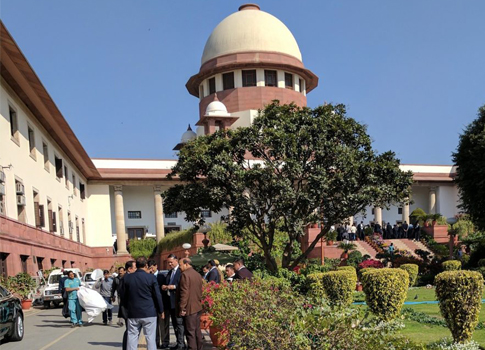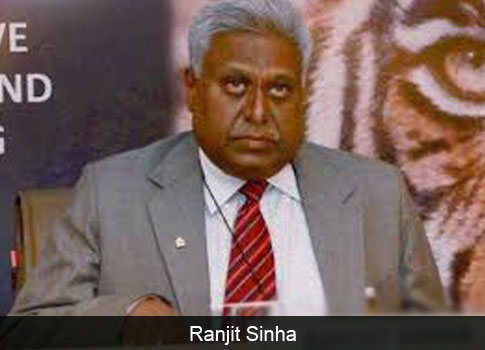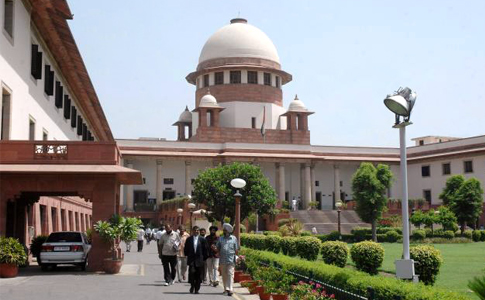Daughters Have Equal Rights In Ancestral Property regardless of birth being pre Hindu Succession Act: SC
The Supreme Court has held that daughters who had been born earlier than the enactment of Hindu Succession Act 1956 are entitled to equivalent stocks as son in ancestral assets. The ruling was once rendered in an attraction filed via daughters difficult a decree in a partition swimsuit, which excluded them from partition.
The partition swimsuit was once filed via the grandson of the deceased propositus of a joint circle of relatives in 2002. The Trial Court held that daughters weren’t entitled to proportion in assets, as they had been born earlier than 1956, the yr of enactment of Hindu Succession Act. The Trail Court additionally denied them the advantage of 2005 modification, which conferred equivalent coparcenary standing to daughters as sons. The High Court upheld the decree of the Trial Court.
The Supreme Court held that the Courts under erred in retaining that daughters weren’t entitled to partition as a result of they had been born earlier than 1956. It was once held that in line with Section 6 of the Act, when a coparcener dies leaving at the back of any female family member laid out in Class I of the Schedule to the Act (which incorporates a daughter), his undivided pastime within the Mitakshara coparcenary assets would no longer devolve upon the surviving coparcener via survivorship however upon his heirs via intestate succession. Therefore, the pastime of the deceased coparcener would devolve via intestate succession on his heirs, which incorporated his daughters.
The Court additionally held that the daughters had been entitled to the advantage of 2005 modification as smartly, and on that foundation additionally they had been entitled to stocks. It was once settled in Prakash v. Phulavati (2016) 2 SCC 36 rights below the modification house to be had to daughters residing at the date of modification, regardless of once they had been born. In the moment case, the bench comprising Justice A.K. Sikri and Justice Ashok Bhushan defined it additional, and said that the modification declared daughter ‘shall via delivery’ turned into coparcener in her personal proper in the similar means as son. Hence, the daughter gets coparcenary proper via distinctive feature of the modification, ‘since birth’. It was once seen as follows:-
Section 6, as amended, stipulates that on and from the graduation of the amended Act, 2005, the daughter of a coparcener shall via delivery turn out to be a coparcener in her personal proper in the similar means because the son. It is obvious that the standing conferred upon sons below the outdated segment and the outdated Hindu Law was once to regard them as coparceners since delivery. The amended provision now statutorily acknowledges the rights of coparceners of daughters as smartly since delivery. The segment makes use of the phrases in the similar means because the son. It will have to subsequently be obvious that each the sons and the daughters of a coparcener were conferred the best of changing into coparceners via delivery. It is the very factum of delivery in a coparcenary that creates the coparcenary, subsequently the little kids of a coparcener turn out to be coparceners via distinctive feature of delivery. Devolution of coparcenary assets is the later degree of and a end result of dying of a coparcener. The first degree of a coparcenary is clearly its introduction as defined above, and as is definitely known.
Also, the truth that the partition swimsuit was once filed in 2002 was once held to be inconsequential. The Court said that as far as partition fits are involved, the partition turns into ultimate simplest at the passing of a last decree. The decree was once handed in 2007. Here, the rights of the daughters were given crystallized in 2005, and therefore the Trial Court must have taken into consideration that side whilst passing decree in 2007.
The Court had also seen that the 2005 modification was once introduced in at the touchstone of equality, thus in search of to take away the perceived incapacity and prejudice to which a daughter was once subjected.
The fundamental changes brought forward about in the Hindu Succession Act, 1956 by amending it in 2005, are perhaps a realization of the immortal words of Roscoe Pound as appearing in his celebrated treaties, The Ideal Element in Law that “the law must be stable and yet it cannot stand still. Hence all thinking about law has struggled to reconcile the conflicting demands of the need of stability and the need of change, the Bench observed.
Hence, it was held that shares will devolve on the daughters as well.
(Credits: Livelaw)



